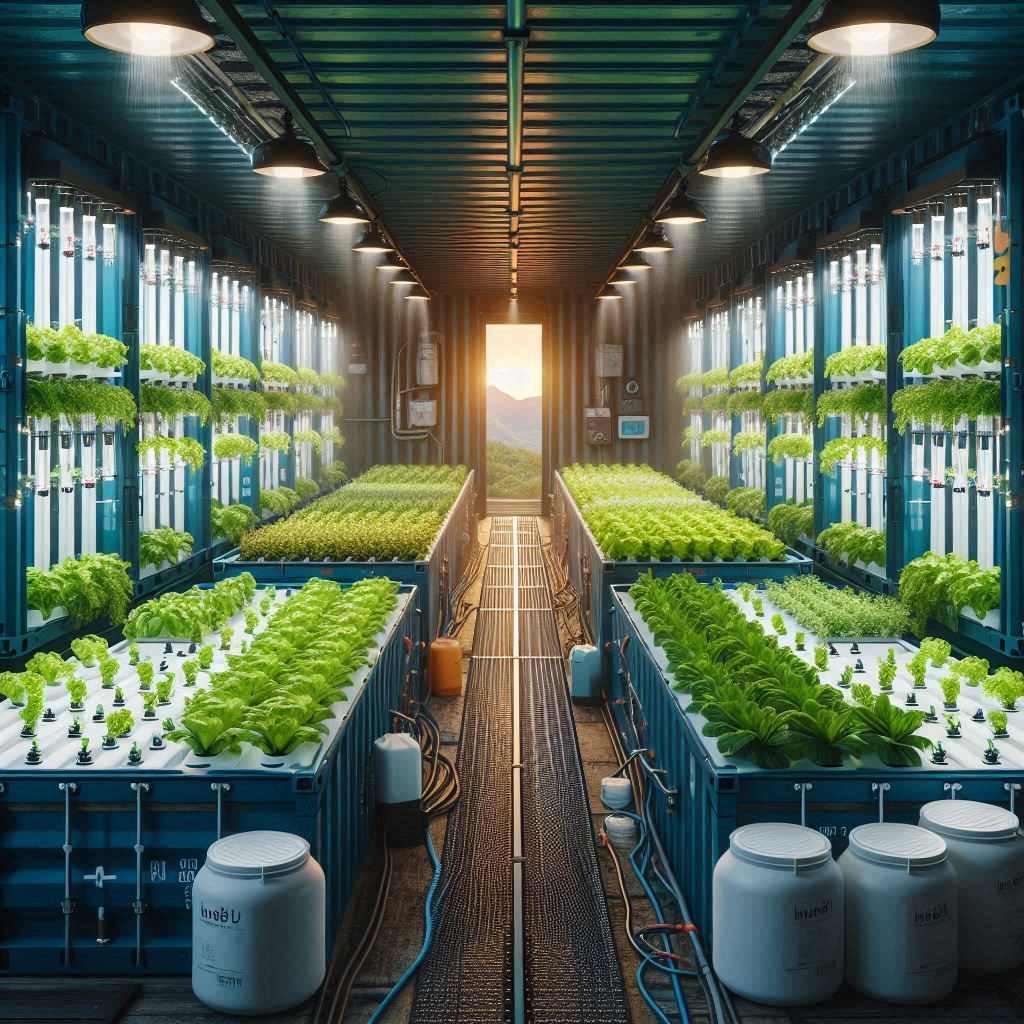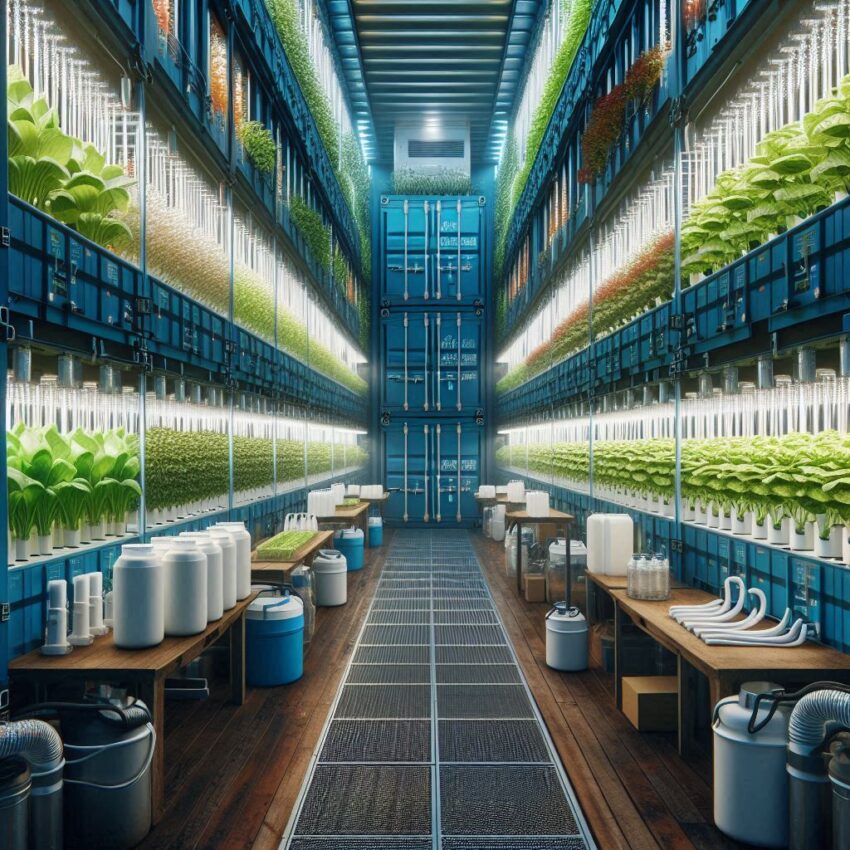Urban agriculture has emerged as a transformative approach to growing food in the heart of cities, where space is often at a premium. Container farming, using modified shipping containers, offers a compelling solution by creating highly efficient, scalable, and sustainable urban farms. This innovative method supports local food production, reduces transportation costs and carbon footprint, and promotes a fresher, healthier urban food supply.
The Foundation of Container Farming
Container farming entails transforming standard shipping containers into controlled-environment growing spaces. These containers typically feature advanced hydroponic or aeroponic systems, LED grow lights, and climate control technologies, facilitating the cultivation of diverse crops irrespective of external weather conditions.
The adoption of containers in urban agriculture serves several purposes. Firstly, it efficiently utilizes vertical space, making it feasible to implement in densely populated urban areas with limited horizontal space. Containers can be set up on rooftops, in parking lots, or on vacant land, converting unused spaces into productive agricultural zones. This spatial efficiency is particularly valuable in urban environments where land availability is scarce and real estate prices are high.
Сontainer farming offers benefits beyond just food production. It contributes to urban greening efforts, enhancing the aesthetic appeal of urban areas and providing residents with access to locally grown, fresh produce. Container farming helps lower carbon emissions associated with food distribution, contributing to environmental sustainability.
Container farms can be easily scalable and modular, allowing for flexibility in expansion or relocation as needed. This adaptability makes them suitable for small-scale urban gardens and larger commercial operations, catering to diverse needs and preferences within urban communities.
Core Benefits of Container Farms
Sustainability
One of the standout benefits of container gardens is their sustainability. They use up to 90% less water than traditional farming methods because water in these closed systems is recycled and reused. The controlled environment also means fewer pesticides and herbicides are necessary, contributing to healthier, organic produce.
Year-Round Production
Container farms can operate continuously throughout the year. Seasonal changes and adverse weather conditions do not affect them, allowing for the steady production of crops. This consistent availability can stabilize local market prices and supply chains.
Localized Food Production
By situating farms close to where consumers live, container farming drastically cuts down transportation distances, thereby reducing emission-related impacts on the environment. Local production also ensures peak freshness of produce, as fruits and vegetables do not have to endure long transport times and storage durations.
Scalable and Modular Growth
As urban populations grow, so does the need for food. Container gardens offer the perfect solution with their modular design. Cities can scale their agricultural operations vertically and horizontally by simply adding more containers. This modularity also allows for the cultivation of diverse crops in separate containers under optimized conditions for each plant species.
The Operational Mechanics of Container Farms

Setting up a container farm begins with carefully choosing a suitable shipping container and outfitting it with essential infrastructure and insulation. Despite the initial expenses involved, the potential for reduced operational costs over time makes this investment worthwhile. Each container must be equipped with a reliable power source and access to water, crucial for sustaining plant growth. Depending on the specific location, adjustments may be necessary to adhere to local zoning laws and agricultural regulations.
The process typically involves converting the container into a controlled environment suitable for cultivating plants. This includes installing systems for irrigation, climate control, and lighting to mimic optimal growing conditions. Insulation is vital to maintain stable temperatures, especially in regions with extreme weather fluctuations. Incorporating sustainable practices such as rainwater harvesting and renewable energy sources can enhance the eco-friendliness of the operation while reducing dependency on external resources.
Integrating smart technology and automation can streamline operations, allowing for remote monitoring and control of environmental factors. This enables growers to make data-driven decisions to optimize yields and resource utilization. Overall, setting up a container farm involves meticulous planning and investment, but the potential for sustainable, high-yield crop production makes it an increasingly attractive option for modern agriculture.
Technology and automation are pivotal in optimizing the productivity of container farms. With automated systems managing lighting, water, and temperature, growers can create ideal growing environments with minimal manual effort. This integration of sensors and IoT devices enables real-time monitoring and adjustments, ensuring each plant receives precise conditions for optimal growth.
Lighting systems, often utilizing LED technology, can be programmed to simulate natural sunlight cycles, promoting healthy plant development while minimizing energy consumption. Automated irrigation systems deliver water directly to the roots, reducing waste and ensuring efficient water usage. Sophisticated climate control systems maintain consistent temperature and humidity levels, crucial for plant health and yield consistency.
The use of sensors throughout the container farm provides valuable data on environmental conditions and plant health. This data can be analyzed to identify trends and optimize growing parameters, leading to higher yields and resource efficiency. The integration of automation allows for remote monitoring and control, enabling growers to manage their farms from anywhere with internet access.
Engaging Communities and Potential
While container farming stands out for its numerous benefits and potential, its success also relies on community engagement and support. Urban farms need the backing of local consumers, businesses, and policymakers to truly transform the urban food landscape. Community-driven container farms can serve as hubs for education and innovation, fostering a more sustainable relationship between urban dwellers and their food sources.
Sustainable farming methods like container gardening pave the way for resilient urban ecosystems capable of producing fresh, nutritious food.


